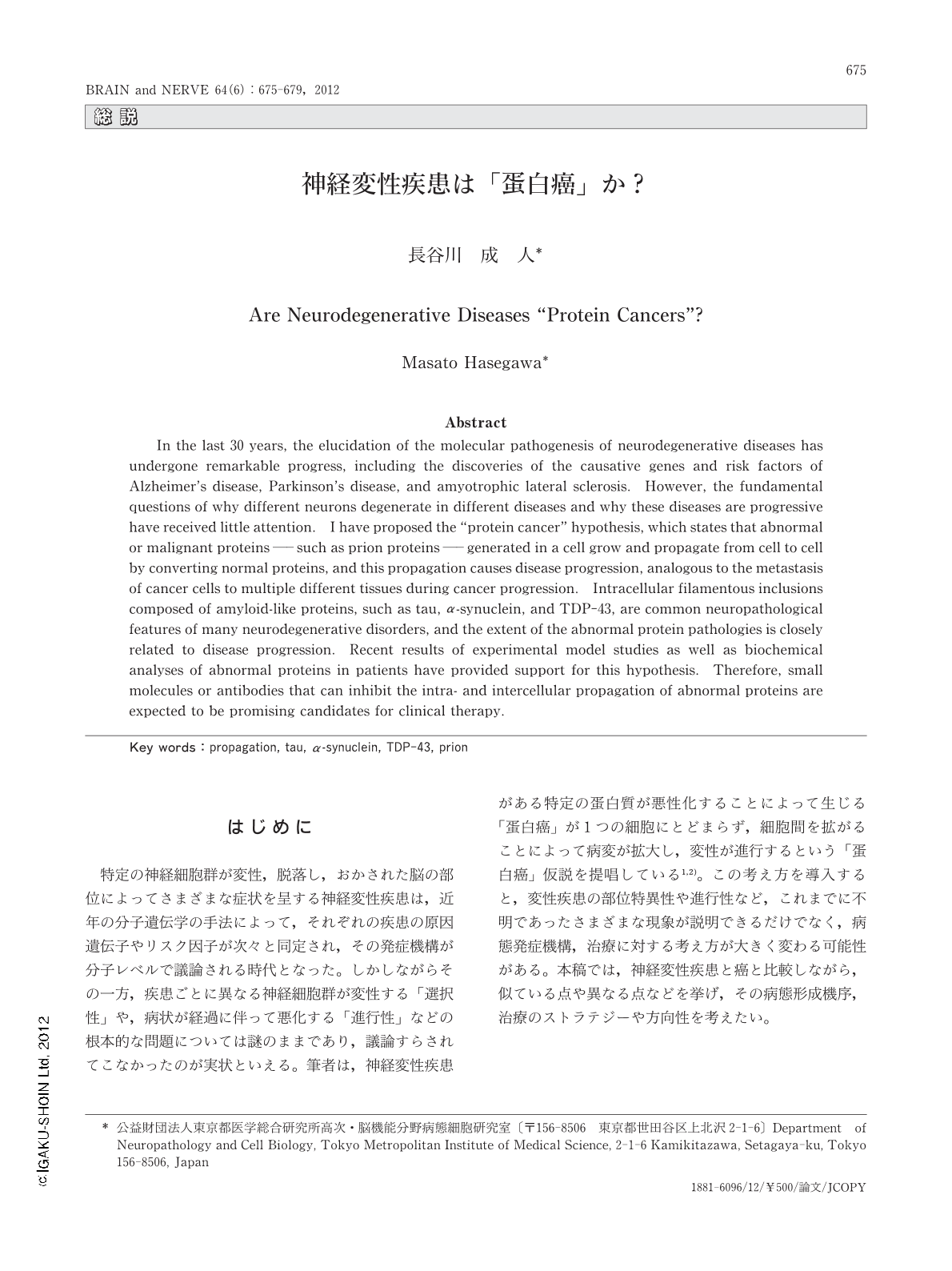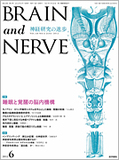Japanese
English
- 有料閲覧
- Abstract 文献概要
- 1ページ目 Look Inside
- 参考文献 Reference
はじめに
特定の神経細胞群が変性,脱落し,おかされた脳の部位によってさまざまな症状を呈する神経変性疾患は,近年の分子遺伝学の手法によって,それぞれの疾患の原因遺伝子やリスク因子が次々と同定され,その発症機構が分子レベルで議論される時代となった。しかしながらその一方,疾患ごとに異なる神経細胞群が変性する「選択性」や,病状が経過に伴って悪化する「進行性」などの根本的な問題については謎のままであり,議論すらされてこなかったのが実状といえる。筆者は,神経変性疾患がある特定の蛋白質が悪性化することによって生じる「蛋白癌」が1つの細胞にとどまらず,細胞間を拡がることによって病変が拡大し,変性が進行するという「蛋白癌」仮説を提唱している1,2)。この考え方を導入すると,変性疾患の部位特異性や進行性など,これまでに不明であったさまざまな現象が説明できるだけでなく,病態発症機構,治療に対する考え方が大きく変わる可能性がある。本稿では,神経変性疾患と癌と比較しながら,似ている点や異なる点などを挙げ,その病態形成機序,治療のストラテジーや方向性を考えたい。
Abstract
In the last 30 years,the elucidation of the molecular pathogenesis of neurodegenerative diseases has undergone remarkable progress,including the discoveries of the causative genes and risk factors of Alzheimer's disease,Parkinson's disease,and amyotrophic lateral sclerosis. However,the fundamental questions of why different neurons degenerate in different diseases and why these diseases are progressive have received little attention. I have proposed the "protein cancer" hypothesis,which states that abnormal or malignant proteins――such as prion proteins――generated in a cell grow and propagate from cell to cell by converting normal proteins,and this propagation causes disease progression,analogous to the metastasis of cancer cells to multiple different tissues during cancer progression. Intracellular filamentous inclusions composed of amyloid-like proteins,such as tau,α-synuclein,and TDP-43,are common neuropathological features of many neurodegenerative disorders,and the extent of the abnormal protein pathologies is closely related to disease progression. Recent results of experimental model studies as well as biochemical analyses of abnormal proteins in patients have provided support for this hypothesis. Therefore,small molecules or antibodies that can inhibit the intra- and intercellular propagation of abnormal proteins are expected to be promising candidates for clinical therapy.

Copyright © 2012, Igaku-Shoin Ltd. All rights reserved.


